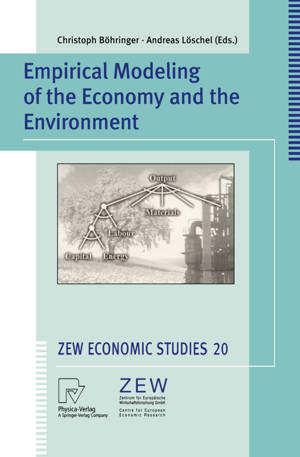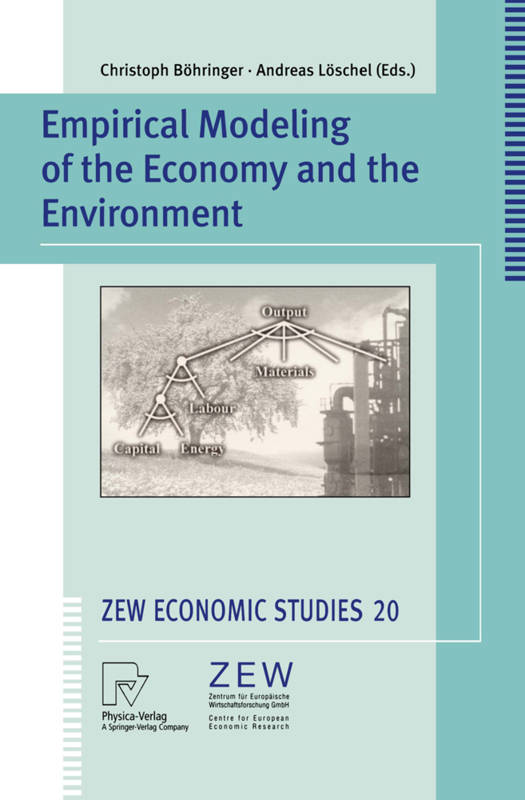
- Afhalen na 1 uur in een winkel met voorraad
- Gratis thuislevering in België vanaf € 30
- Ruim aanbod met 7 miljoen producten
- Afhalen na 1 uur in een winkel met voorraad
- Gratis thuislevering in België vanaf € 30
- Ruim aanbod met 7 miljoen producten
Zoeken
Empirical Modeling of the Economy and the Environment
€ 153,95
+ 307 punten
Omschrijving
ZhongXiang Zhang (East-West Center, Honolulu) uses a global model based on marginal abatement cost curves for 12 world regions to estimate the contributions of the three flexibility mechanisms under the Kyoto Protocol, i. e. emissions trading, joint implementation, and the clean development mechanism. He shows how the reduction in compliance costs of industrialized regions depends on the extent to which the flexibility mechanisms will be available. Not surprisingly, the fewer the restrictions on the use of flexibility mechanisms will be, the greater the gains from their use. These gains are unevenly distributed, however, with industrialized regions that have the highest autarkic marginal abatement costs tending to benefit the most. Restrictions on the use of flexibility mechanisms not only reduce the potential of the industrialized regions' efficiency gains, but are also not beneficial to developing countries since they restrict the total financial flows to developing countries under the clean development mechanism. Christoph Bohringer (ZEW, Mannheim), Glenn W. Harrison (University of South Carolina, Columbia), and Thomas F. Rutherford (University of Colorado, Boulder) evaluate the welfare implications of alternative ways in which the EU could distribute its aggregate emission reduction commitment under the Kyoto Protocol across member states. Using a large-scale CGE model, they compare a uniform proportional cutback in emissions and the actual EU burden sharing agreement with an equitable allocation scheme derived from an endogenous burden sharing calculation. The latter equalizes the relative welfare cost across member states.
Specificaties
Betrokkenen
- Uitgeverij:
Inhoud
- Aantal bladzijden:
- 326
- Taal:
- Engels
- Reeks:
- Reeksnummer:
- nr. 20
Eigenschappen
- Productcode (EAN):
- 9783790800784
- Verschijningsdatum:
- 18/09/2003
- Uitvoering:
- Paperback
- Formaat:
- Trade paperback (VS)
- Afmetingen:
- 155 mm x 231 mm
- Gewicht:
- 498 g

Alleen bij Standaard Boekhandel
+ 307 punten op je klantenkaart van Standaard Boekhandel
Beoordelingen
We publiceren alleen reviews die voldoen aan de voorwaarden voor reviews. Bekijk onze voorwaarden voor reviews.






